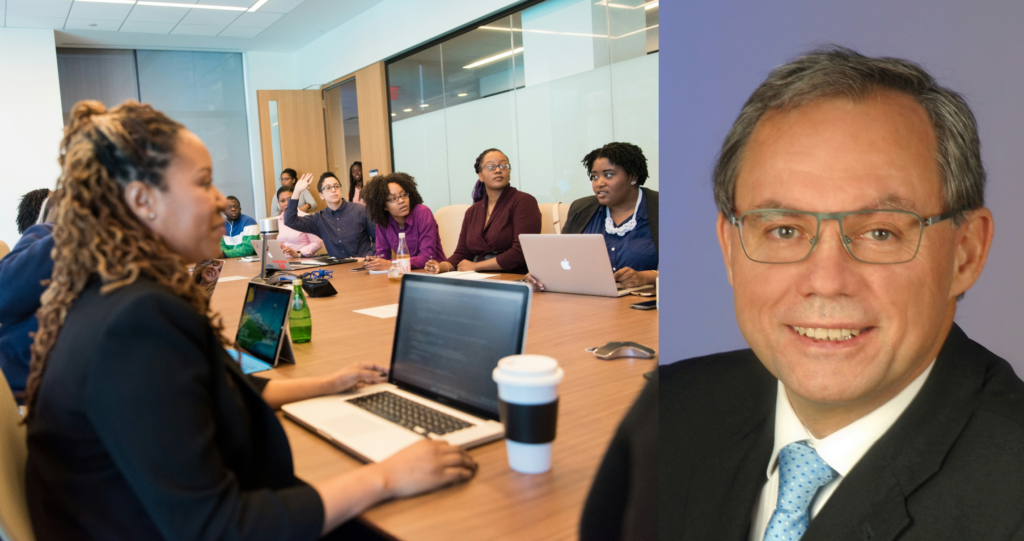Fostering of IP activities at SMEs – Delegation of IP tasks and IPR training of delegates
Our I3PM Committee IP for SMEs, with its five members Ivan Gauci, Erica K. Smith, Russel Thom, Claire Fritz and me, Udo Gennari, is supporting the use of IP by SMEs.
This article covers my experiences with fostering IP activities at SMEs, which were undertaken jointly with 5 Austrian SMEs, one a R&D provider, the others in the technical field of mechatronics, in the 1 ½ years project SIN-NET – German abbreviation for “Increasing the innovative power of SMEs by professional handling of industrial property rights”, funded by the Austrian Research Funding Agency FFG as a project in protec-NET plus.
As a first task in the project, a questionnaire was created and distributed to many SMEs, to learn, amongst other topics, about perceived obstacles hindering the proper handling of IP and the protection by IPR at SMEs.
The following were the main barriers which were predominantly cited:
- The CEO of the SME suffers very often from a severe lack of time
- Many SMEs cannot afford a full-time IP specialist
- Protection of IP by IPR is perceived as expensive and complicated → often avoided
- The knowledge about how to properly handle IP and its protection is not sufficient
Our solutions within the project, which were applied to the 5 participating SMEs, were:
- Delegation of IP activities to interested persons – with the CEO being still responsible for decision making
- Part-time IP contact persons in one or more departments, e.g. R&D or production – leads to better interaction of R&D and IP delegates and scouting of invention ideas
- Development of our 2-day IP training to train and empower the IP contact persons
- Implementation of the first IP training course as part of the project, with subsequent optimisation through feedback from SMEs
Such face-to-face IP training courses, constantly updated, have been held for many years. The next one in Nov. 2024 – Practical Administration of Intellectual Property Rights – Part 1 has the following agenda (translated):
- Basics of patents and intellectual property rights at large
- Patent search & monitoring
- Patent search exercises in Espacenet
- Patent strategies – from invention idea to successful innovation protected by IPR
- Processes and partners in the property rights system in Austria
- Patent specification – explained at concrete example
- Practical examples of use / exploitation of intellectual property rights
- Finding licensees via technology offers in the Enterprise Europe Network database
- Basics of licensing including licensing terms
- How to address potential licensees in writing
- Comprehensive IP Guide in form of a digital manual, with links to relevant pages
In total, more than 100 participants were trained in the practical handling of IP and IPR, and a considerable number of them assumed a part-time position as responsible IP contact at SMEs, as patent scouts in departments of the Johannes Kepler University in Linz or as members of IP departments of larger companies having gained improved IP knowledge.
Frequent encounters still occur with the part-time IP contact persons, be it in individual IP counselling like patent searches regarding novelty and citable state of the art, or in IP events termed experience exchanges, with currently interesting topics presented by renowned external IP experts.
As IP Helpdesk Ambassador, I asked the IP Helpdesk team to provide us with a choice of renowned IP experts for the targeted fields on their budget. A very appreciated lecture on IPR in the Digital Environment was given by patent attorney Robert Harrison. This field is gaining ever more importance, with an increasing share of start-ups and SMEs offering attractive digital business models but lacking knowledge of suitable IP protection, which was perfectly addressed in the lecture.
A further field of IP advice especially for SMEs has been the implementation of idea management to reap and foster existing ideas: Examples from big companies like my former employer VOEST ALPINE Industrieanlagenbau (short: VAI, now: Primetals Technologies) were presented, and alternatively leaner versions proposed.
IP contact persons in the departments are perfectly suited as first contacts for inventive personnel. A first check makes sense, whether it is a technical invention idea suitable for the company and likely to be patented, or an improvement proposal. Incentives are an important feature of idea management, but not restricted to monetary rewards. Public appreciation by the CEO at company celebrations is also effective, supplemented by non-cash prizes.
All these examples show how easily a complex topic can be demystified, if you take a guided closer look at it. Some free Online IP trainings are listed below:
- https://i3pm.org/events/
- EPO IP support for Business decision makers
- The EC IP (SME) Helpdesks
- European IP Helpdesk – e-Learning content
- EUIPO SME corner
In a follow-up project the role of intellectual property in each innovation step was elaborated. Furthermore, 7 practical IP tools, valuable for SMEs were developed – Stay tuned!
About the blogpost author:
 Udo has 20 years of industrial R&D experience and 17 years as IP expert at Business Upper Austria, serving Upper Austrian companies. Udo holds a PhD in Physical Chemistry and is fluent in German (MT) and English.
Udo has 20 years of industrial R&D experience and 17 years as IP expert at Business Upper Austria, serving Upper Austrian companies. Udo holds a PhD in Physical Chemistry and is fluent in German (MT) and English.
Udo offers IP services since 2006 – Advice on property rights, is nationally and internationally as European IP Helpdesk Ambassador well connected, provides free IP services for EEN clients in European and international innovation networks and leads the Business Upper Austria PATLIB centre. Furthermore, Udo is engaged as co-chair in the I3PM Committee IP for SMEs
Udo supports IP commercialization with patent valuation, successful patenting with novelty searches and IP counselling and provides universities with the assessment of employee inventions and recommendations for take-up.



